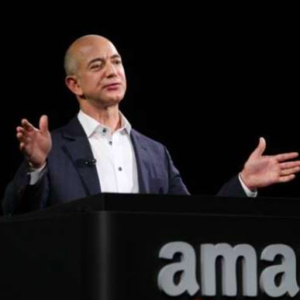Democratic presidential candidate Elizabeth Warren wants to break up big tech companies, and her blog post last week outlines a plan to take down the big ones, like Facebook and Google. But she didn’t offer many details about how she plans to break up Amazon, even though Amazon fits the traditional definition of antitrust better than Silicon Valley.
And she’s not the only one. 2020 candidate Bernie Sanders constantly slams Amazon for treating warehouse workers poorly — a well-documented travesty – which bodes ill for Amazon should one of them win the presidency. Furthermore, Democrats and Republicans in the House and Senate are seemingly united in their crusade to take down Big Tech companies.
Amazon seems to understand this, which could be why Amazon reportedly reversed course on its controversial requirement for its third-party sellers (i.e., small businesses and entrepreneurs) to offer the lowest price for their products on Amazon.com. Prior to the policy change, anyone who sold their products on Amazon could not offer them for a lower price on a competing website.
This turn of events could be a classic example of the threat of regulation prompting companies into self-regulation.
But Amazon still engages in other anticompetitive practices, like copying third-party sellers’ products and turning around and selling them for a cheaper price under the “Amazon” brand. Not only that, but some economists worry that Amazon’s infiltration of the D.C. metro area with its HQ2 could persuade regulators to turn a blind eye to Amazon’s monopolistic tendencies.
Reversing one bad policy may not be enough to save Amazon from antitrust litigation or a regulatory crack-down.
In December 2018, Sen. Richard Blumenthal (D-Conn.) sent a letter to the Assistant Attorney General of the Antitrust Division of the Department of Justice, Mark Delrahim outlining economic and antitrust concerns over Amazon’s relationship with its third-party sellers.
“Recent economic research has demonstrated that price parity provisions — also known as most favored nation clauses — can harm consumers, especially when enforced by large tech platforms with significant market power,” he wrote. “Given Amazon’s leading position in the U.S. e-commerce market, it may now possess the degree of market power at which its price parity provisions could raise serious competition concerns.”
The Federal Trade Commission’s Rohit Chopra, known for his anti-Big Tech stance, tweeted earlier this week that “in some countries,” Amazon’s practices are “restricted or banned.”
According to a 2018 Yale study, for example, Europe pursued antitrust enforcement over similar anticompetitive practices from online hotel booking websites like Booking.com and Expedia.
But law enforcement still hasn’t pursued antitrust litigation against Amazon for undercutting its own sellers with Amazon-branded knock-offs.
Siri Terjesen, Director of American University’s Center for Innovation, told InsideSources that she knows many entrepreneurs and small business owners undercut by Amazon.
“I advise some guys in northern Virginia who sell on Amazon, and Amazon had all their selling data and decided they were going to create a similar product, and so they did,” Terjesen said. “And my friends then had to still use Amazon but ended paying all these warehousing fees while Amazon sold out [the Amazon-brand knockoff products] and then offered theirs.”
In other words, Amazon creates its own knockoff of a popular product sold on its platform, then prioritizes the knockoff instead of the original, causing third-party sellers to lose money and business.
“Unfortunately we might see these monopolies emerge in technology where firms try to create artificial non-markets, and that’s obviously bad for firms and bad for consumers,” she said. “I do have concerns when Amazon becomes more than just a platform but is basically limiting others access to the platform. I’ve heard stories from many entrepreneurs across America who have used this marketplace.”
Terjesen said Warren is right about some of her critiques of Big Tech, but Terjesen isn’t convinced antitrust is the right solution to the problem.
“I think the only constant in all of this is, Amazon is evolving and growing and vertically and horizontally into all of the other businesses,” she said. “So you have to look at each of these businesses on its own merits. We also need to think about the fact that technology regulation doesn’t always reach its desired aim. I’m certainly reluctant to create more of a government bureaucracy to regulate tech because there’s no way the government an respond as quickly to where the platforms are going.”
At the same time, she added, Amazon’s big move into the D.C. area means more lobbying dollars and more influence over tech and business regulation. That’s a major concern given Amazon’s anticompetitive inclinations.
“All of the cost of trying to attract HQ2 is a major cost to the system,” she said. “I have some major concerns [D.C. is] underwriting Amazon business. The owner of Amazon also owns The Washington Post which a lot of people still read and then you have a marketplace of ideas also being attached to the marketplace for items.”

